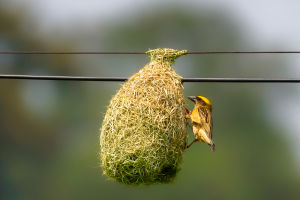If you love gardening but dread the thought of harmful chemicals invading your plants, you're not alone.
Many gardeners are turning to natural, non-toxic ways to keep pests at bay without risking their health, the environment, or their garden's delicate balance.
But how exactly can you fight garden pests effectively without chemicals? The answer lies in understanding nature's own defenses and working with them.
Instead of quick fixes that mask the problem, natural pest control focuses on building a resilient garden ecosystem that repels harmful insects while encouraging beneficial creatures. Let's dig into how you can harness these methods in your own garden.
Why Go Natural? The Risks of Chemical Pesticides
Before exploring solutions, it's important to understand why many gardeners avoid chemical pesticides:
• Chemicals can harm beneficial insects like bees, ladybugs, and earthworms.
• Residues may remain on fruits and vegetables, posing health risks.
• Overuse leads to resistant "super pests" that are harder to control.
• They can disrupt soil health and the overall garden ecosystem.
By contrast, natural pest control methods prioritize safety and sustainability, creating a garden that thrives over time.
Attracting Beneficial Insects: Nature's Pest Patrol
One of the most effective natural strategies is inviting helpful insects to do the heavy lifting. Ladybugs, lacewings, and parasitic wasps prey on common pests like aphids, mites, and caterpillars.
To attract these allies:
• Plant nectar-rich flowers such as marigolds, dill, and fennel.
• Provide shelter with small piles of leaves or a bug hotel.
• Avoid broad-spectrum pesticides that remove beneficials.
By fostering a balanced ecosystem, your garden gains a natural defense line.
Using Plant-Based Sprays and Barriers
When pests do show up, gentle plant-based remedies can be a first line of defense:
• Neem oil: Derived from the neem tree, it disrupts pest feeding and reproduction without harming most beneficial insects.
• Garlic and chili sprays: Homemade mixtures deter many insects due to their strong scents.
• Insecticidal soap: Made from potassium salts of fatty acids, it suffocates soft-bodied insects like aphids and whiteflies.
Additionally, physical barriers such as row covers, sticky traps, or copper tape protect vulnerable plants without chemicals.
Crop Rotation and Companion Planting
Sometimes, pest control starts before planting. Rotating crops each season prevents pest populations from building up in the soil. Meanwhile, companion planting uses natural plant relationships to reduce pests:
• Planting garlic near roses to repel aphids.
• Interspersing basil with tomatoes to discourage whiteflies.
• Using nasturtiums to attract aphids away from vegetables.
These thoughtful layouts confuse pests and keep them from overwhelming your garden.
Maintaining Healthy Soil and Plants
Strong, healthy plants resist pests better. Good soil is the foundation:
• Enrich soil with compost and organic matter.
• Water properly — over- or under-watering stresses plants and invites pests.
• Prune damaged leaves to reduce hiding spots for insects.
A thriving plant is less vulnerable to attack, reducing the need for any pest control.
One Deep Insight: Patience and Observation Are Key
Natural pest control requires more observation and patience than spraying chemicals. Regularly inspect your plants for early signs of pests or disease. Early intervention, combined with the right natural strategies, stops problems before they spread.
This approach may not deliver instant eradication, but it builds a garden ecosystem that keeps pests in check long term—saving you time, money, and worry.
Conclusion:
Taking care of your garden without toxic chemicals is not only possible — it's rewarding. By embracing nature's balance through beneficial insects, plant-based treatments, and smart planting techniques, you create a vibrant, safe space for plants, pollinators, and you.
What natural pest control method are you excited to try first? Your garden's healthiest days might just be ahead.


